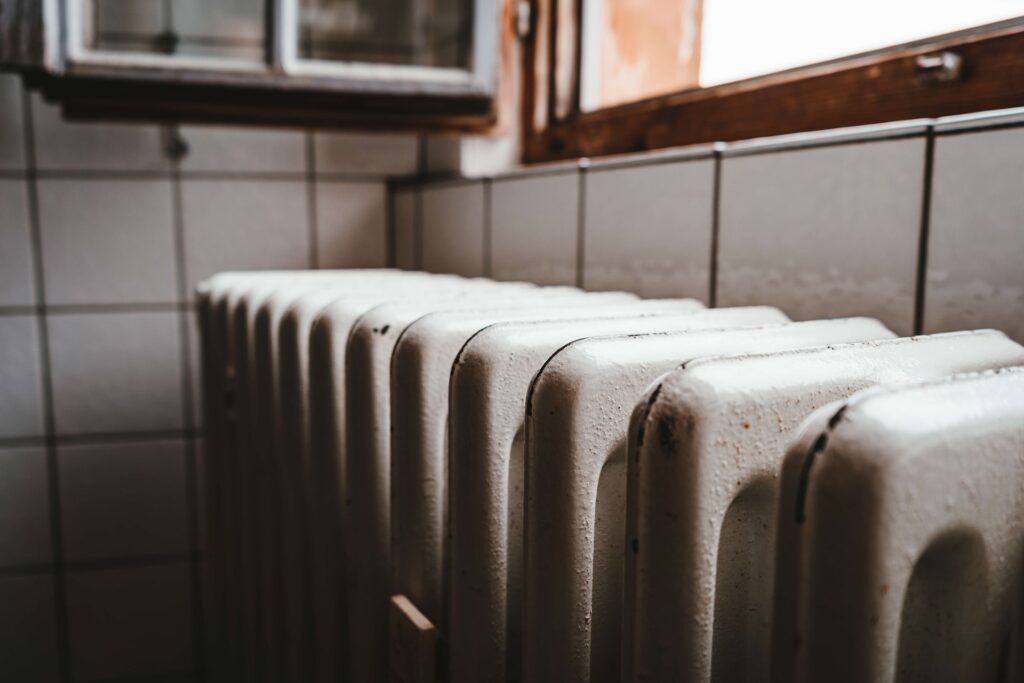What Type of Heating is Best for You?
There are many things to consider when choosing a heating system not least of which is the price of energy. Apart from the cost of installing and running a central heating system, there is also the environmental impact of fossil fuel systems to consider.
From gas to electricity, oil to LPG, solid fuel to renewable sources how do you choose the best type of heating for your home? Let’s take a look at each of them so you can make an informed decision.
Gas central heating
Gas is the most common form of central heating in the UK with most homes having gas-fired boilers. Mains gas is much cheaper than electricity with a kWh of gas costing 10.3 pence compared to 34 pence for a kWh of electricity, almost three times the cost.
For energy efficiency, it is also hard to beat gas boilers, especially a condensing boiler so it is not surprising that it’s the most popular choice for domestic heating. If your property is on the mains gas grid this is the most economical source for your central heating system.
When your boiler is due for replacement or you are installing a new system consider a condensing boiler. They are the most energy-efficient as they reuse the gases produced when gas is burned to generate extra heat. Other types of boilers expel these fumes into the atmosphere through a flue.
LPG heating
LPG stands for Liquefied Petroleum Gas. It is a highly efficient fuel that contains flammable hydrocarbons and is probably more recognisable as bottled gas for your barbecue or caravan. However, as more than 4 million homes in the UK are not connected to the main gas grid the use of LPG in large storage vessels is a common sight in these locations.
The price of LPG fluctuates more than gas and oil but currently costs around 12 pence per kWh. It is a highly efficient fuel particularly when used with a condensing boiler and as a result can be slightly cheaper to run than gas or oil. Remember that your LPG gas central heating cost has to take into consideration the rental or purchase of the storage tank which is approximately £60-£90 per year.
Oil central heating
In Northern Ireland, approximately two-thirds of households use oil-fired central heating while in the whole of the UK, this amounts to around a million homes. In the past, it was a popular choice for those who live in rural locations and who are not connected to mains gas.
Although the price of oil can fluctuate you can stock up in advance, taking advantage of lower prices in the summer. The government is encouraging people who use oil central heating to switch to more sustainable sources through renewable energy incentive schemes. There are proposed alternatives for those who are off the gas grid to switch to bio-fuels or low-carbon liquid which could be used with oil-fired boiler systems currently in use in many homes.
Electric heating
Electric central heating is the most expensive option but having said that all households are connected to the electricity grid, unlike mains gas. Older properties built in the ’60s may have storage heaters which allow you to use cheaper rate electricity at night and store it for use the next day.
Electricity is three times more expensive to use than gas but 40% of the electricity in the UK is generated in gas-fired power stations so the price of gas will also affect the cost of electricity. Generating your own electricity from solar panels is a less costly option although the initial cost of installation will need to be considered.
Renewable energy
The government encourages households to switch from traditional heating sources such as oil and solid fuels to renewable energy. Installing energy-saving materials such as heat pumps and solar photovoltaic panels will be subject to zero rate VAT until March 2027 to entice consumers to switch.
It is also possible to apply for the Boiler Upgrade Scheme. This one-off grant pays £7,500 toward the purchase and installation of an Air Source Heat Pump, the same amount for a Ground Source Heat Pump and £5,000 toward a Biomass boiler. The scheme is due to run until 2028.
Wood burning stoves
Wood-burning stoves are another sustainable energy option for heating your home and could reduce your heating bill by almost 10%. These stoves can be used as stand-alone fires or can be connected to your boiler to provide hot water for your radiators.
Using a wood-burning stove means you’ll pay 13% less than for gas central heating and a third of the cost of electric heating. Most wood burners have high efficiency, between 75-90% and with an exposed flue you can increase the amount of heat radiating into the room. Wood is a sustainable and renewable fuel and the presence of a wood burner gives your house an aesthetic appeal which can also increase your property’s value.
By 2025 all new properties will have to be fitted with low-carbon heating so this is something to think about when considering what type of heating is best for your home. Energy prices show little sign of lowering so it’s good to understand what is available and how you can save some money when heating your home.





